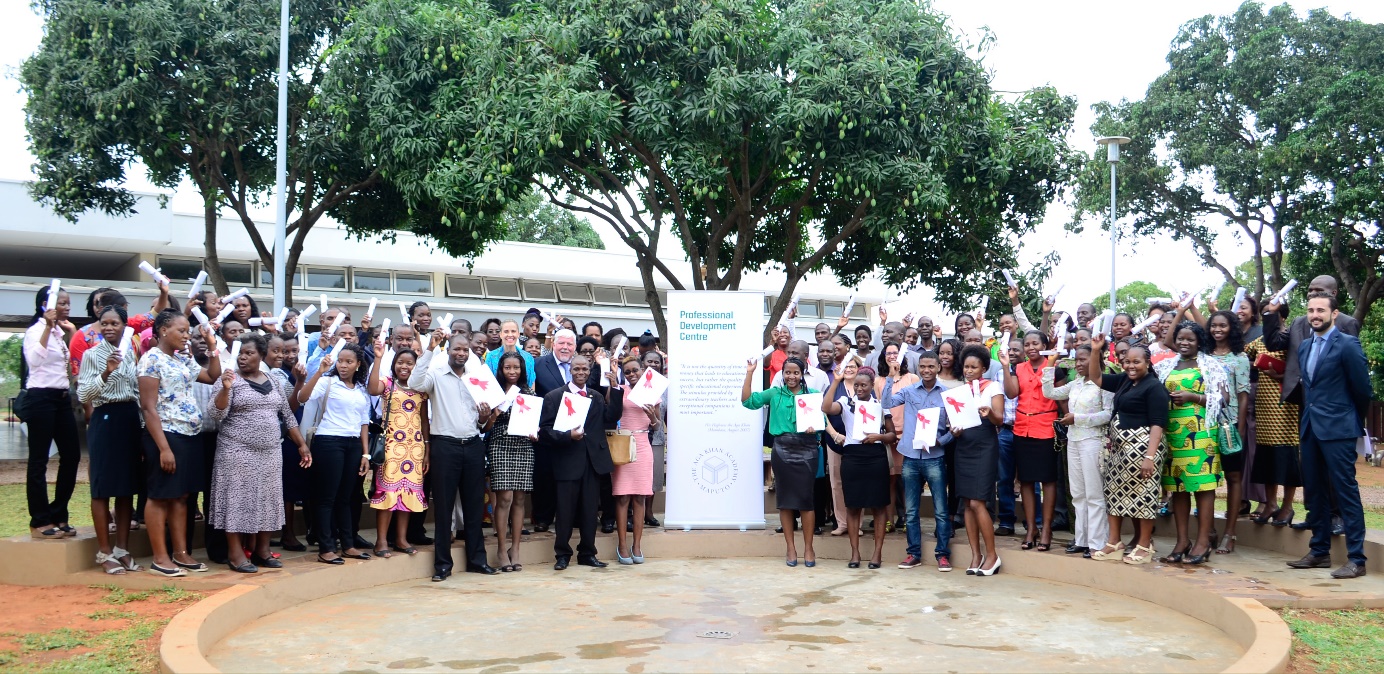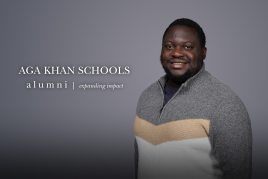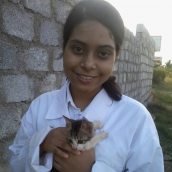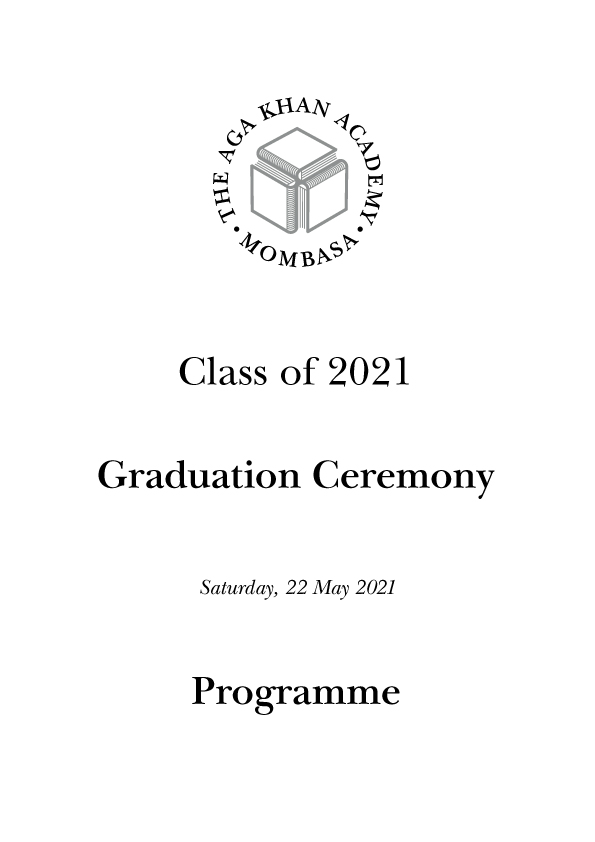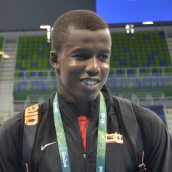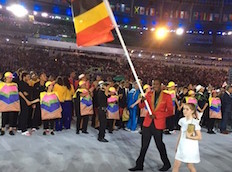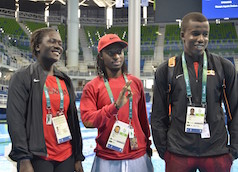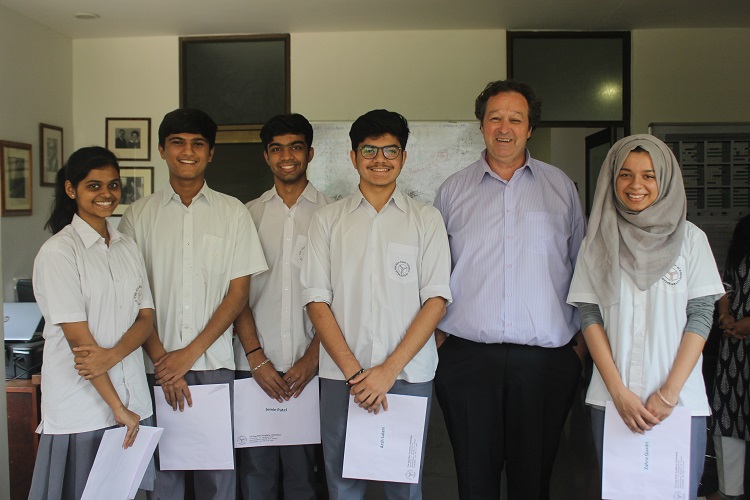News
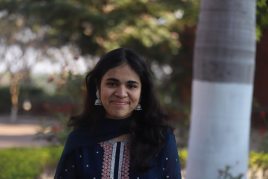
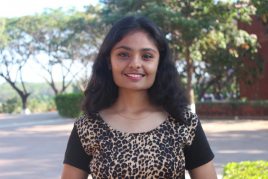
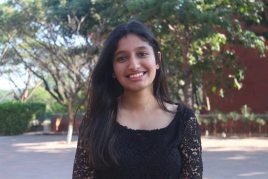
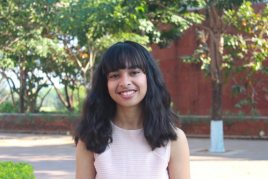
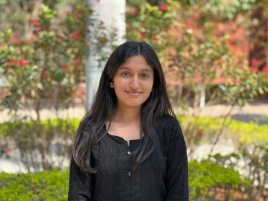
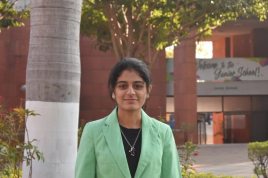
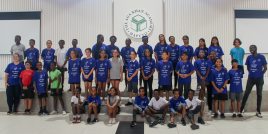
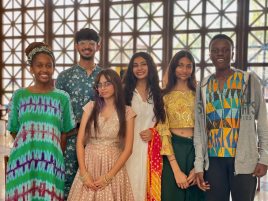
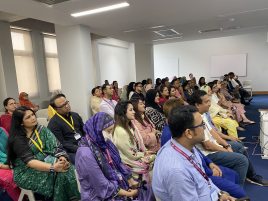
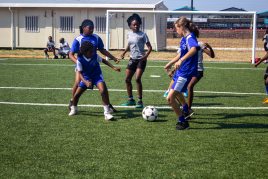
Pages
Fatema Sheikh (Class of 2012): Advocating Educational Equality
Fatema Sheikh carries the lessons she learnt during her time at the Aga Khan Academy Mombasa with her to date.
Fatema joined the Aga Khan Academy Mombasa community in 2009 and graduated in 2012. She is currently pursuing a Bachelor of Science in consumer behaviour and marketing at the University of Reading on a full scholarship – an achievement for which she appreciates the support she received at the Academy through university counselling. She has had a colourful university career so far and hopes to graduate with her degree in the summer of 2015.
In the summer of 2013 after her first year at university, Fatema underwent a three-month internship with Champions Life Academy – an organisation which recruits and trains undergraduate students from universities to raise funds for various charities.
“This internship appealed to me, especially because it was related to my course of study as well as being able to support a worthwhile cause.”
She raised funds for a charity called Action for Blind People.
“This internship strengthened a lot of my skills, such as communication, negotiation and time management as well as improving my people skills tenfold. I am now able to approach and communicate with anybody.”
In addition to the work she did over the summer, Fatema was also heavily involved in various community activities through the university’s RED Award scheme.
Currently, she spends her time as a volunteer working with special needs children. Her desire to get involved with something like this was sparked during her time at the Academy in Mombasa. As part of her creativity, action, service (CAS) component of the Diploma Programme (DP), she spent time working with children in the special support unit of the Junior School, helping them with one-on-one or small group sessions on areas such as reading and comprehension.
“As difficult as it is, it is equally rewarding. When you get the child to enjoy what they are doing and play a part in helping them learn, it is very fulfilling.”
One situation she reflects on is her success in working with a student with several impairments, such as delayed speech, hearing impairment and a slight problem with balance.
“Helping and encouraging her made me feel like I was contributing to her understanding of various concepts," she says. "Working with children is always a two-way thing – they teach you as much as you teach them.”
In the past, she has also been involved in cultivating a garden at a school as well as volunteering at a family church in Reading during Christmas.
Fatema also places great worth on the advice she got from the Academy in preparation for university.
“My experience at the Academy could not have prepared me for life at university any better. While at the Academy, I was immersed in a diverse and multicultural environment which allowed me to adjust relatively easily to university where I was and still am constantly meeting people from different backgrounds.”
Having studied in this environment made her more open-minded and accepting of other people, and that has contributed to her being able to make friends and interact with people more easily. She also reflects on the value the International Baccalaureate (IB) DP added to her education.
“Deciding to do the IB DP is probably one of the smartest decisions I have made. I feel that the work ethic and skills such as time management required to do the programme have prepared me to take on any challenge.”
However, it was not just the academic component of the programme that pushed Fatema to stretch her limits. The DP's CAS component requires students to be actively involved in extra-curricular activities, and the theory of knowledge lessons encourages students to think critically in all disciplines. She commends both these aspects of the programme for instilling values in her that have become intrinsic to the way she lives her life.
“It made me into a more well-rounded and holistic individual,” she says. “It prepares you for life outside of school and makes you think about things that would not cross your mind or that you normally would not consider important. My ability to think and analyse situations critically has improved significantly due to constantly being challenged throughout the programme.”
Fatema has also been able to think about the time she has spent away from home and how her experience at the Academy prepared her for life in a new environment. The abundance of the AKA Mombasa alumni at the University of Reading was a part of that, and she was able to form connections quickly within the community. She also felt that the Academy offered education and opportunities just as good, if not better, than the schools in more developed places such as England, which made it very easy to transition into the unfamiliar environment.
“The Academy and the IB encourages independent thinking and this served me well since it was the first time I was living away from home for a long period and where I would have to make a lot of decisions on my own.”
A lot of Fatema’s involvement in her local community at university is inspired by the ethics she picked up at the Academy. One of the projects of which she is particularly proud is an outreach programme she conducted while interning for the Kenya School Improvement Project (KENSIP) as part of the Aga Khan Foundation internships offered to DP students at the Academy. She visited rural schools and worked with the adolescent girls there towards educating and counselling them on the day-to-day challenges faced. Initially, she focused on identifying the key issues to be tackled and then tried to come up with a way in which sensitive issues such as abuse, early pregnancy and the menstrual cycle could be approached.
“I formed a very close bond with the girls I worked with as well as their teachers. I truly felt like I helped to make a difference and taught them something worthwhile. Although I spent most of my time with the girls, I also included the boys and led forums which discussed issues such as bullying and drug abuse.”
As part of her outreach project, she worked to raise awareness in local rural communities about equal education opportunities for both boys and girls.
Fatema's commitment to providing education opportunities remains strong to this day. In particular, she feels passionate about eradicating gender inequality when it comes to education in rural parts of the world. Her work with KENSIP highlighted the need for equal education for boys and girls as the key to future development.
“It is only through education and knowledge that the current and future generations can flourish. I believe the key to breaking the poverty cycle is improving education opportunities. So, if I had all the resources at my disposal, I would advocate for the importance of the girl child being allowed to attend and stay in school.”
Excellence in Education
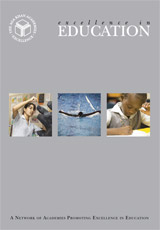
Construction of the AKA Maputo residences
Construction of the student residences for the Aga Khan Academy Maputo is underway! This photo gallery shows the progress of construction from January to April 2018.
“Creating leaders”: Impact of an Aga Khan Schools education
During his time at the Aga Khan Academy Mombasa, Ham Serunjogi (Class of 2012) – CEO and co-founder of African fintech giant Chipper Cash – realised the importance of staying connected to something larger than himself and giving back to the world. This fuelled his remarkable success, and recently, the Forbes 30 Under 30 honouree was selected to serve as an advisor to the US President on African diaspora engagement.
“A big part of it was that I was in the residential programme,” Ham says. “My roommates and my house parents were a central part of my experience; they practically became family to me.”Originally from Uganda, Ham became a part of the Academy’s residential programme, where students in Grades 6-12 from around the world live on campus and participate in different activities and leadership opportunities.
“The group of friends I had on the floor we lived on,” he continues, “I value those friendships deeply.”
Ham credits his dorm parent, Mr Bardai, as a large part of his amazing experience at the Academy.
“Mr Bardai was absolutely the best and looked out for me,” he said. “We remain close to this day.”
Along with his residential parents, Ham fondly recalls teachers such as Mr Kassam, who incorporated meals in his English lessons as they were described in books the students read in class, which encouraged the kids to bring in their own dishes for a potluck.
“We had a really fun time in class with Mr Kassam.”
Ham also recollects his role as President of the Academy’s Student Representative Council, which allowed him to lead the secondary school students and work closely with his peers and teachers.
“The Academies as a whole aim to instil in their education the notion of creating people who are leaders that can come back and help develop their local communities,” he explains. “The idea of being a net positive contributor to society – that was something I learnt strongly.”
“The more I think back on the ways the Academy made sure we were connected to the community, with the events we did outside of the Academy with other community members, that was a key reminder to not stay in an isolated group of privileged people or with people that aren’t connected to something larger than ourselves,” he explains.
“That really resonated with my time over there.”
From Kampala to Mombasa to Iowa
After completing the International Baccalaureate (IB) Diploma Programme at the Academy, Ham’s journey leaped to another continent when he moved to Iowa in the US to study economics at the prestigious Grinnell College.
He was ready for the adventure, thanking his move to the Academy in Mombasa from his hometown in Kampala, Uganda as an insight into what it is like to move away.
“[My time at the Academy] was the first time in my life I lived away from home,” he says. “It was like a nice trial period before moving further away.”
“I was excited to move to Grinnell, to Iowa, for all the big and small things like seeing snow for the first time,” he reflects. “Just being around a new environment, new culture and a new group of people was very exciting.”
The creation of Chipper Cash
Following his graduation from Grinnell and a two-year stint at Meta (formerly Facebook) came a pivotal stage in Ham’s life. In 2018, he and his co-founder Maijid Moujaled established Chipper Cash, a financial technology, or fintech, company offering several products and services to people in Africa, such as local and cross-border payments, cards, stocks, airtime and data, and bill pay.
“I wanted to make an impact on my local community with what I know best,” Ham says. “I wanted to create a solution that might solve a problem for people in Uganda.”
The CEO met his co-founder at Grinnell, who wanted to create a similar solution for the people of Ghana, where he was originally from.
“It was easy to align our thinking because we wanted to start the company to check some boxes – what needs to be done and where?”
Chipper Cash now has over five million customers operating in countries including Nigeria, Rwanda, Ghana, Uganda and the US. It has been featured in several global financial publications as well as news channels including BBC, CNN, Quartz, Apple and Forbes, in which Ham was named as one of the honourees of the Forbes 30 Under 30 Finance List of 2023.
Serving on the US President’s advisory council
In September 2023, Ham was appointed to serve on the Inaugural President’s Advisory Council on African Diaspora Engagement in the United States. The Advisory Council is tasked to advise the US President on a range of issues, including how to strengthen relations between Africa and the US, promote trade and investment, and build educational exchanges.
“I definitely pinch myself every night just to make sure I’m not dreaming,” he laughs. “If you’d ask me at any point in my life if I would ever be an advisor to the US President, there’s no way I’d have thought that’s possible.”
Ham highlights what he is most excited about for his role as an advisor.
“One, it’s an incredible group of people to be a part of,” he says. “And two, in today’s world, Africa is the fastest growing continent and they’re strong partners with the US. We will help advise the President to form policy and help drive US-African relations and investment further.”
“Policy is going to affect billions of people, and if we do our job well, we’ll make a positive impact on the world. If that’s all I ever do in my life, I’ll be very happy with myself.”
Giving back to the Academy
Ham feels fortunate to be in a position where he can give back to the place that started it all. The alumnus consistently provides the Academy in Mombasa with support by coming back to address graduates, creating videos and content to promote the Academy, or even donating to support current and future students.
“It’s a special place to me,” Ham describes. “I was fortunate enough to give the 2021 graduation commencement address, and the theme of my remarks was the realisation of the opportunities I’ve been lucky to receive, and the best way to repay them is to help repair the world.”
Indira Bulhan: Discovering Universal Success
“Physics has been the subject which never failed to fascinate me. It always made me question, understand, explore and enjoy at the same time. However, I am more interested in looking for things which are yet hidden from human intellect. I like doing things which no one has done before. I aspire to become an astronaut someday.”
It is Indira’s belief that her time at the Aga Khan Academy, Hyderabad will play a key role in allowing her to achieve her dreams and further her ambition to explore the mysteries of the universe.
“At the Academy, a school day is not just a normal school day, but an incredible journey. Every day is like a new exploration filled with fun and thrills. I enjoy the entire school day as it is filled with fun, challenges and of course, loving friends and supportive teachers.”Life at the Academy, however, is not simply about gaining a classroom education. For students like Indira, the Academy places great emphasis on learning life lessons through the community service programs that are part of their extracurricular activities. By teaching students the importance of caring about others, the Academy instills a sense of altruism and accountability that will hopefully grow as the students move forward with their lives.
“My favourite extracurricular activity is Caring Hands. [As a group], students go to an organisation where abandoned, ill and stray animals such as dogs, cats, rabbits and birds are kept and taken care of. Being an animal lover, I love going to the place where I can care for the animals and make them happy, even for a little while. Sometimes, language is not required to understand each other and to build a bond and this becomes evident when we go to Caring Hands.”
With her incredible appetite to explore the known and unknown universe, Indira is well on her way to making a remarkable contribution to our society at large, which she hopes will make her father proud.“My role model in life is my dad. He is the one who never gives up hope and never fails to see the beauty of simplicity. He believes in himself and originality [and is] someone who wants to do something different than what others are already doing. He has always been a source of inspiration for me.”
By Uzma Rajan
Newsletter readers please click here to return to the newsletter (browser version)

